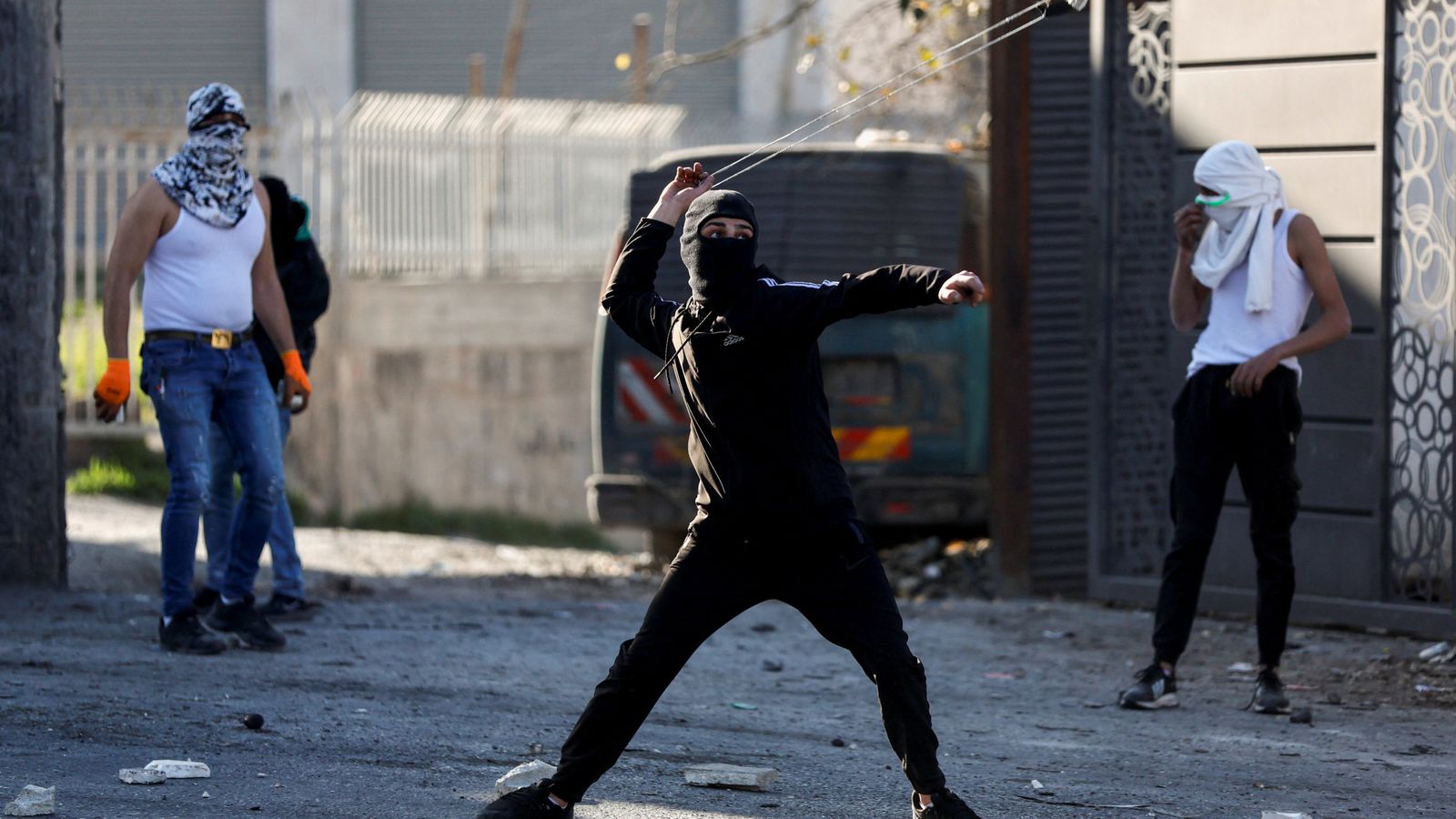The United States will “continue to oppose anything” that puts a two-state solution “further from reach” after one of the bloodiest months in the West Bank and East Jerusalem in several years, the US secretary of state has said.
Antony Blinken said the US opposes Israeli settlement expansion and any moves towards the annexation of the West Bank.
The US secretary of state spoke at a news conference in Jerusalem on the second day of a two-day visit to the region where he met Israel’s leader Benjamin Netanyahu and the Palestinian president Mahmoud Abbas.
His comments come days after two shootings, one by a Palestinian gunman and another by a Palestinian teenager, left seven people dead and five wounded in Jerusalem.
Some 35 Palestinians have been killed in clashes with Israeli troops since 1 January, including 10 who died in an Israeli military raid in the flashpoint town of Jenin last Thursday.
Mr Blinken said on Tuesday: “The horrific terror attacks in Jerusalem, the escalating violence in the West Bank, have underscored the significant challenges to security and stability that the region faces and that we face.
“A rising tide of violence has resulted in the loss of many innocent lives on both sides… all sides must take steps to prevent further escalation of violence and restore calm.”
He continued: “It’s President Biden’s firm conviction that the only way to achieve (peace) is through preserving and then realising, the vision of two states for two peoples.
“The United States will continue to oppose anything that puts that goal further from reach.
“We’ve been clear that this includes things like settlement expansion, the legalisation of outposts, demolitions and evictions, disruptions to the historic status of the holy sites, and of course incitement and acquiescence to violence.”
Mr Blinken also said that during his meetings in Israel and the occupied West Bank he had heard a “deep concern about the current trajectory”.
However, he also said that he heard concrete ideas from both sides that, if pursued, could help defuse the current situation.
Mr Blinken’s first visit since Mr Netanyahu returned to power this month as the head of one of the most right-wing governments in Israel’s history comes at a time of extreme tension between the two sides.
He said Palestinians were facing a “shrinking horizon of hope” that needed to change.
Amid rising anger at near-daily raids by Israeli forces in the West Bank, Mr Abbas’ Palestinian Authority (PA) suspended its security cooperation agreement with Israel last week after the largest incursion in years.
The operation saw Israeli forces penetrate deep into a refugee camp in the northern city of Jenin, setting off a gunfight in which 10 Palestinians died.
January has been bloodiest month for Palestinians since 2015, while officials say attacks on Palestinian property by Israeli settlers have also increased.
On Friday, a Palestinian gunman killed seven people outside a synagogue in an east Jerusalem settlement on Friday.
The next morning, a 13-year-old Palestinian boy shot and wounded two Israelis elsewhere in east Jerusalem.
“The Israeli government is responsible for what is happening today, because of its practices that undermine the two-state solution and violate the signed agreements,” Mr Abbas said during Mr Blinken’s visit.
Mr Netanyahu has reinforced troops in the West Bank and promised measures to strengthen settlements there, but so far held off from more extreme steps.
On Tuesday, Mr Blinken met Israeli Defence Minister Yoav Gallant and discussed cooperation to stop Iran developing a nuclear weapon as well the situation in the West Bank.
Hopes of achieving a two-state solution, with a Palestinian state based largely in the West Bank, have all but disappeared since the last round of US-sponsored talks stalled in 2014.
The Biden administration has said it would re-establish a consulate for Palestinians shuttered by former president Donald Trump, but has yet to say when or where it will be opened.

